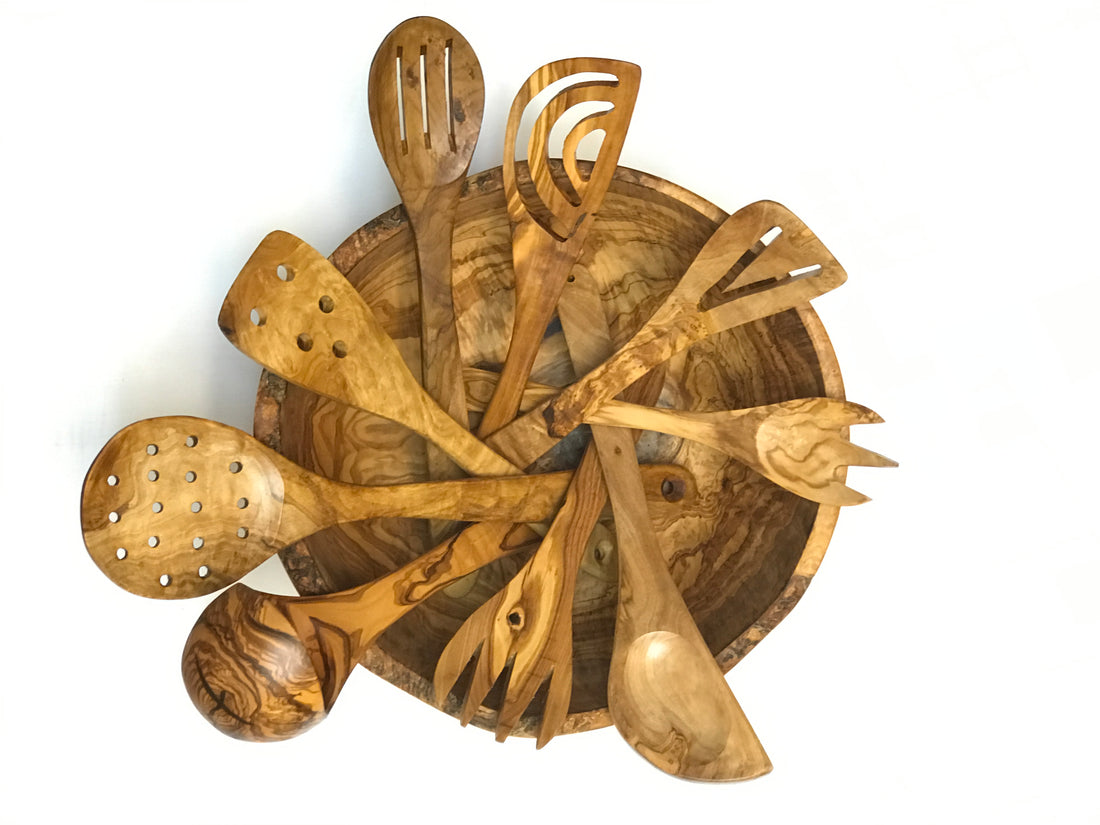
The Timeless Craftsmanship of Tunisian Olivewood: A Kitchen Essential Built to Last
Share


Sustainability is at the heart of the olivewood industry in Tunisia. The use of olivewood as a raw material is inherently eco-friendly. It stems from the practice of harvesting wood from olive trees that no longer bear fruit, ensuring that no trees are felled solely for the purpose of obtaining wood. This responsible approach promotes the conservation of olive groves, which are vital for the local ecosystem and agricultural landscape. Additionally, the durability of olivewood products contributes to their sustainability, as they have a long lifespan and can be passed down through generations, reducing the need for frequent replacements.
By choosing olivewood utensils, customers not only bring a piece of Tunisian heritage into their homes but also make a conscious choice in favor of sustainable and environmentally-friendly materials.
Lasting Beauty: Beyond its functional qualities, Tunisian olivewood possesses a natural beauty that enhances any kitchen aesthetic. The wood's warm tones, unique grain patterns, and smooth texture add an elegant touch to the culinary experience. Each piece of olivewood bears the imprint of its origin, radiating a sense of authenticity and connection to the rich Tunisian heritage.
Caring for Olivewood Utensils: To ensure the longevity of your olivewood utensils, proper care is essential. Here are a few tips to help you maintain their beauty and functionality:
- Hand wash Only: Avoid immersing olivewood utensils in water or placing them in the dishwasher. Instead, gently wash them by hand using mild soap and warm water.
- Regular Oil Conditioning: Apply a thin coat of food-safe mineral oil or to the utensils periodically. This helps to moisturize and protect the wood, preventing it from drying out and cracking.
- Avoid Extreme Temperatures: Olivewood is sensitive to extreme heat and cold. Avoid exposing it to direct sunlight, and refrain from using it in high-temperature environments such as ovens or stovetops.
The Tunisian olivewood industry stands as a testament to the country's rich heritage and dedication to craftsmanship. With its remarkable strength, density, and lasting beauty, olivewood utensils from Tunisia have become cherished pieces in kitchens worldwide. By understanding the significance of this ancient craft and taking proper care of these treasured pieces, you can enjoy the enduring quality and timeless charm of Tunisian olivewood for years to come.
